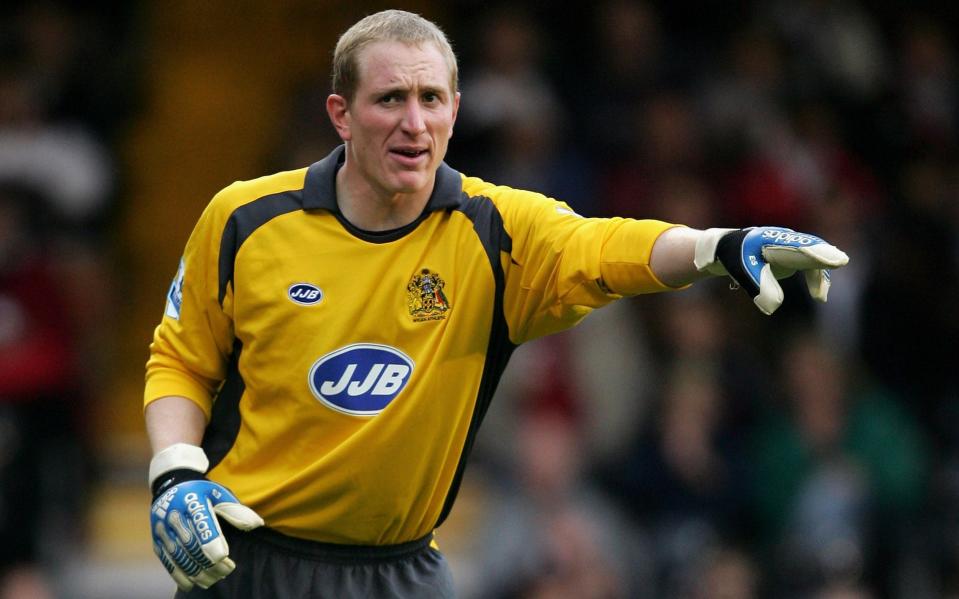Wada under fire after delaying tramadol ban until 2024

Chris Kirkland has denounced a decision by the World Anti-Doping Agency to delay banning tramadol until 2024, branding the powerful painkiller “as dangerous as cocaine”.
The former Liverpool and England goalkeeper, who this summer revealed he had become so addicted to the opioid that he came close to taking his own life, hit out after Wada’s executive committee voted to add it to the World Anti-Doping Code prohibited list – but not immediately.
Telegraph Sport revealed earlier this week that Wada was on the brink of banning the painkiller behind harrowing stories of addiction in football and rugby and its ExCo had the power to bring it into effect from January 1. But the organisation has instead chosen “to provide an additional year for broad communication and education of athletes, their entourage and medical personnel”.
Kirkland said: “I can only speak from experience and it should be banned a lot quicker than that. It doesn’t take two years to wean people off it.
“I’m five months clean today and feel great having been on it for 10 years in massive doses. It’s as dangerous as cocaine for me and that’s already banned, so tramadol should be as well, as soon as possible.”
A delay was ordered despite the ban only applying to tramadol use in competition.
Such a ban would stop it being used to allow an injured player to play through the pain or to defy the effects of fatigue but would not prevent it being used for pain management out of competition or force those dependent on it to go cold turkey.
Telegraph Sport has been told player unions had lobbied Wada in relation to the latter, while they also want tramadol treated as a “drug of abuse” and not a performance-enhancer, with lighter sanctions for those caught using it in competition.
'Tramadol addiction has contributed to huge problems'
Dr Michael Bennett, the Professional Footballers’ Association’s director of player welfare, said: “We know there are players who have got into real difficulty with tramadol usage and who have developed a reliance or addiction issues. PFA members have approached us for help and there have been high-profile cases where tramadol addiction has contributed to huge problems in the lives of players, both during and after their career in football.
“For us, tramadol usage is a player wellbeing issue. The delay in the introduction of a ban should provide an opportunity for the use of tramadol to be properly assessed and safely phased out, whilst also providing a longer window for those who may have developed a reliance to seek the support they may need.
“We will want to see more detail around what consequences there will be for players who may test positive after a ban comes in. Given the acknowledgement that tramadol can cause addiction we made representations, along with colleagues at the Professional Players Federation (PPF), urging that this be treated as a drug of abuse, which would ensure a more ‘wellbeing led’ approach to any sanctions.
“We will also seek further detail over how the in-competition aspect of the ban can be enforced and measured effectively.
“Our concern is that there will be a significant number of players who have not reached out for help, or who may not fully realise the extent of their reliance on tramadol. Whilst the introduction of a ban has been delayed, our message to players is that if you are worried you may have an issue with an addiction, don’t wait to ask for help.”
Tramadol, which can also cause nausea, drowsiness and a loss of concentration, had been on Wada’s monitoring programme for a decade and there was mounting pressure for it to be added to the prohibited list, including from UK Anti-Doping.
It was banned by the Union Cycliste International (UCI) in 2019 amid long-standing calls to that effect, including from the then Team Sky, and this summer saw Nairo Quintana retrospectively stripped of sixth place at the Tour de France after it was found in two of his blood samples.
He denies taking it and this month lodged an appeal at the Court of Arbitration for Sport.
The UCI stopped short of imposing bans for tramadol-related transgressions, which only result in disqualification from the event in which a positive test occurs.

 Yahoo News
Yahoo News 